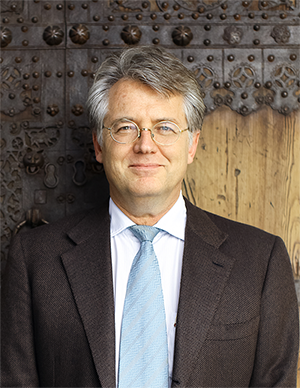
Two decades ago, I joined 50 other representatives of European companies to found the European Chamber.
Since then, I have been entrusted by our members to serve as president for eight of the Chamber’s 20 years.
So much has changed over this period. We founding members were children of the ‘90s Asian financial crisis, a time when economic headwinds battered a China that was still determining the direction it would go in. Thankfully, then Prime Minister Zhu Rongji correctly identified the crisis as an opportunity to set China’s course towards unprecedented economic opening-up, with the goal of acceding to the World Trade Organisation (WTO). The European Chamber was established to organise the European business community into specific areas of expertise, to both help China’s leaders develop the economy, and monitor the country’s adherence to its WTO commitments.

Since then, the European Chamber has carved out a consistent and meaningful track record that demonstrates European businesses’ commitment to the Chinese market. Central and local authorities have been able to access our insights and understanding of the market, along with our recommendations, through our diverse range of publications: from the annual Position Paper and Business Confidence Survey, to thematic reports like China Manufacturing 2025 and The Road Less Travelled, local position papers and industry-specific analyses like our paper on the aviation sector, In for the Long Haul. We go to the trouble of writing these papers because we believe in China’s ability to reform, and we need China to succeed, making it as important to engage today as it was 20 years ago.
Nevertheless, despite two decades passing since our founding, European companies still encounter many closed doors when trying to invest in China. Time and time again, we have been promised significant opening and equal treatment, only to see slow and incremental market reforms that have little to no impact on our members’ operations. With a ‘one economy, two systems’ model now emerging, in which state-owned enterprises grow at the expense of the innovative private sector, it is little wonder that our sense of optimism is frequently supplanted by ‘promise fatigue’.
Yet, when it comes to China, I still have hope. Although hesitancy, and complacency, has undoubtedly crept into the system, I still feel that the spirit of reforms Deng Xiaoping launched in the late 1970s remains in China’s DNA.
For Europe, it is essential that we build unity among member states to address the virus and to manage European Union-China relations. We must not approach our relationship as a zero-sum game that would precipitate a move towards the kind of decoupling championed by some in Washington. This would lead to rising costs, massive unemployment and the destruction of international supply chains.
We now find ourselves at a crossroads, much as we did at the European Chamber’s inception. The global economy is again being trampled, and the challenges ahead demand bold decisions. The European Chamber believes that establishing a meaningful Comprehensive Agreement on Investment by the end of 2020 would be the best way forward. This would clearly demonstrate that China’s appetite for reform remains strong, and serve as a milestone in our joint efforts to build a sustainable and fair global economy.
I hope that in another two decades from now, my successors will be writing about this period as a turning point, when China decided to close the gulf between rhetoric and reality, take the politics out of business and to choose truly open markets over a state-driven economy. The European Chamber will continue to work towards that future, and look to China’s leaders to fulfil their promises.


Recent Comments